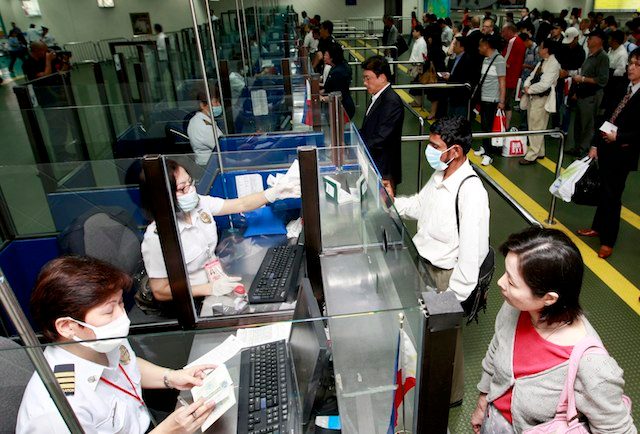SUMMARY
This is AI generated summarization, which may have errors. For context, always refer to the full article.

MANILA, Philippines – The Bureau of Immigration has already lifted its blacklist order on 9 Hong Kong journalists who had taunted President Benigno Aquino III at a 2013 regional forum in Bali, but Malacañang still could not say what the legal basis for the ban was.
On Tuesday, November 25, Communications Secretary Herminio Coloma Jr said it is “appropriate” that the blacklist was lifted, since the National Intelligence Coordinating Agency (NICA) itself – which had requested the earlier BI order on the journalists – had recommended it.
But asked whether the NICA made a mistake in recommending the blacklist order to the BI, Coloma defended the agency.
“No. All their action is according to their respective agency mandates. NICA has a role to play, BI has a role to play. And in my opinion, the element of good faith was there in doing their respective functions and when their attention was called on this matter, that’s when the other considerations we mentioned surfaced,” he said.
These considerations, Coloma said, were that nothing untoward happened at the recent APEC summit held in China, and the fact that the Hong Kong bus hostage issues have been resolved.
“I think after these matters were duly considered, there was a realization that the blacklist was not appropriate. And according to the existing laws, while it is summarily done, it is also not permanent – the imposition of denial of entry or blacklisting. There is a process of review; there is a process of appeal and it could be lifted once the reasons have been sufficiently reviewed or validate,” he said.
Coloma, however, could not state a legal basis for the blacklist order. Three days earlier, he quoted BI Commissioner Siegfred Mison in his statement, when he said that “specific actions attributed to the journalists in the 2013 APEC summit” are “not one of the grounds for denial of entry into the country.”
Coloma admitted not knowing the basis of the blacklisting saying, “We have to look back and inquire what the context was” but added, “I think we have here the principle of presumption of regularity that there was no arbitrariness in implementing in.”
“We just need to scrutinize what their actual basis was at that time and we had had no opportunity yet to address it in that way,” he said.
Unusual timing
NICA had recommended to the BI the blacklisting of the journalists after deeming them a “public safety threat” after the Bali incident. NICA also recommended the lifting of the June 6, 2014 order after it cited the fact there was no untoward incident that transpired during the President’s recent visit to China for the 26th APEC Leaders’ Summit this month.
Ironically, the June order was set 8 months after the Bali incident, and two months after Hong Kong and Manila already resolved its issues over the bus hostage crisis which caused tensions between the two governments, and which was the topic of the journalists’ questions.
Asked about the unusual timing, Coloma only said it appears NICA and the BI were operating under a “better safe than sorry” principle, and that the BI has no time to “fully investigate all requests” so “the usual response is to issue a summary order” and review it later.
“If there happened to be a problem or danger, no one can say they did not avail of the discretion to issue a summary order first,” he said.
The statement comes two days after the Foreign Correspondents’ Association of the Philippines (FOCAP) said that the blacklist – which it viewed with “grave concern” – would send a “chilling effect” to journalists worldwide.
The Philippines is hosting the APEC Summit in 2015. – Rappler.com
Add a comment
How does this make you feel?
There are no comments yet. Add your comment to start the conversation.